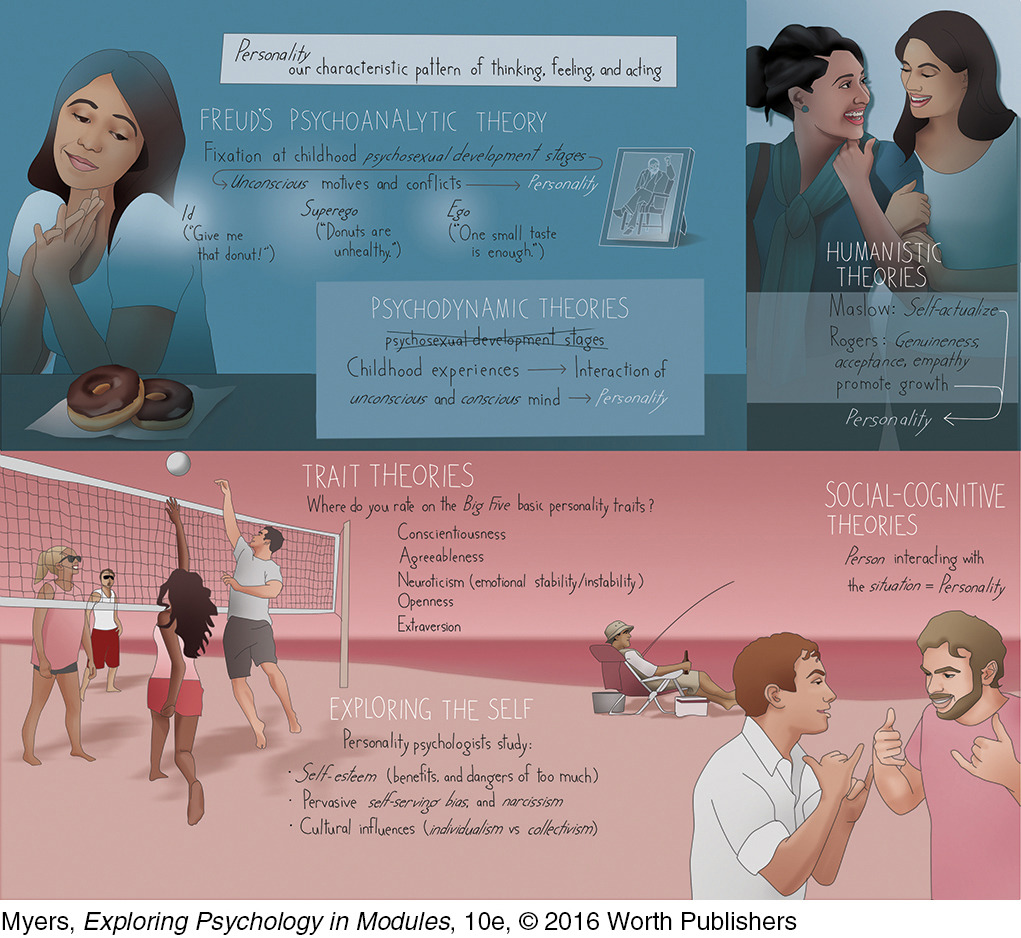Chapter 13 Introduction

Personality

LADY GAGA dazzles millions with her unique musical arrangements, tantalizing outfits, and provocative performance theatrics. In shows around the world, Lady Gaga’s most predictable feature is her unpredictability. She has worn a meat dress to an awards show, sported 16-
Yet even Lady Gaga exhibits distinctive and enduring ways of thinking, feeling, and behaving, including an openness to new experiences, a spotlight-
Much of this book deals with personality. Other modules consider biological influences on personality; personality development across the life span; how personality relates to learning, motivation, emotion, and health; social influences on personality; and disorders of personality. These modules focus on personality itself—
We begin with two historically important theories of personality: Sigmund Freud’s psychoanalytic theory and the humanistic approach (Module 38). These sweeping perspectives on human nature laid the foundation for later personality theorists and for what Module 39 presents: newer scientific explorations of personality. Today’s personality researchers study the basic dimensions of personality, and the interaction of persons and environments. They also study self-